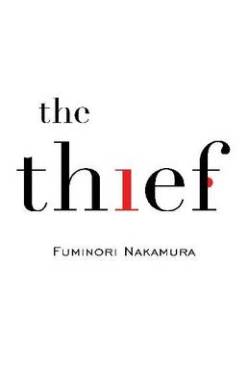 Synopsis: The
Thief is a seasoned pickpocket. Anonymous in his tailored suit, he
weaves through Tokyo’s crowds so smoothly sometimes he doesn’t even
remember the snatch. Most people are a blur to him, the nameless faces
of his victims. He has no family, friends or connections…
Synopsis: The
Thief is a seasoned pickpocket. Anonymous in his tailored suit, he
weaves through Tokyo’s crowds so smoothly sometimes he doesn’t even
remember the snatch. Most people are a blur to him, the nameless faces
of his victims. He has no family, friends or connections…But he does have a past, which catches up with him when Ishikawa, his first partner, reappears and offers him a job he can’t refuse. It is an easy job: tie up an old, rich man, steal the contents of the safe. No one gets hurt.
Only the day after the job does he learn that the old man was a prominent politician, and that he was brutally killed after the robbery. And now the Thief is caught in a tangle from which even he might not be able to escape.
Review
Fuminori Nakamura’s The Thief at the heart is a wonderfully-crafted piece of work, steeped in philosophy and darkness. Translated from Japanese for the first time, we follow the journey of the Thief; a pickpocket who roams the streets, relishing the thudding anticipation of the steal as he snatches wallets and watches seemingly at will. A psychological thriller, Nakamura takes us on a fascinating exploration of the criminal underworld, while offering mediation on human nature and fate.
This is no ordinary ‘crime’ novel, if indeed that label fits the mark; instead we delve deep into the mysteries of the human mind. Our pickpocket still has his gift, stealing with perfect precision – but something is missing; there is a void, an absentmindedness that he can’t seem to shake free. It is a sense of foreboding that plagues his waking dreams; he blacks out for long periods of time, returning to reality with no memory of what he has done since. The return of an old friend is the catalyst for our protagonist’s fall from fortune; snapping the thin thread holding his life in relative comfort, and plunging him into a downward spiral of ruthless mob leaders, from which he will struggle to escape. The past, then, sneaks up on our protagonist in the way that he so successfully manages to creep up undetected to his victims.
In truth then, the plot moves slowly in Nakamura’s text. The characterisation isn’t particularly strong, and as readers we are given next to zero information about our protagonist’s past – aside from a murmured name of a previous lover. Despite this, I believe this is the point – it works. The ambiguity of the novel adds to the tension and anticipation throughout, and I for one was interested to see where it would go next. At times it is slow going, but although the philosophical musings of our narrator and indeed the criminal that holds his life in his hands are not particularly profound, they do much to infuse the story with an interestingness that makes up for the lack of plot.
Our protagonist, aside from being a talent in his field and ponderous in life, is also sympathetic. Through a sub-plot surrounding a young boy and his mother, Nakamura develops another level to his text and reveals more about the nature of our pickpocket. In a store he spots a mother and her son, poor and stealing from the shelves in order to put food in their stomach. He saves them from being caught, and as the novel progresses, reluctantly begins to take the young boy under his wing. It is interesting to watch as their relationship develops, and indeed how he comes to care for the boy. It is something that pleases him, fills the void that has begun to open; the emptiness and loneliness is replaced by a warmth when he gazes upon the boy that admires and looks up to him. I feel that throughout the text the author manages to craft a fantastic conflict in our protagonist: that blend of an introverted criminal forced to hide in the shadows of society, against the need to be a part of it. After all, even the most reclusive of people need someone in their lives.
The dénouement of The Thief is an interesting one. In some ways it feels almost unfinished; an ambiguous ending which answers no questions, and leaves the reader with perhaps a host of fresh ones. Yet in others there seems to be a strange sense of finality. Even we know not how things will turn out, in some ways whatever happens, this acts as a rebirth for our protagonist. I have heard from many that have raged against the ending of Nakamura’s novel, but I for one felt profoundly affect by it, and perhaps that was the idea: to leave the reader asking the questions hours after turning that final page.
Overall then, The Thief is cleverly written; offering a refreshing look at human nature, while at the same time providing us a glance at the seedy criminal underworld. Perhaps there will be some that will frown at the slow pace and ambiguous ending, but in my eyes it is a fantastic psychological thriller, that is more than worth a read.
4/5.